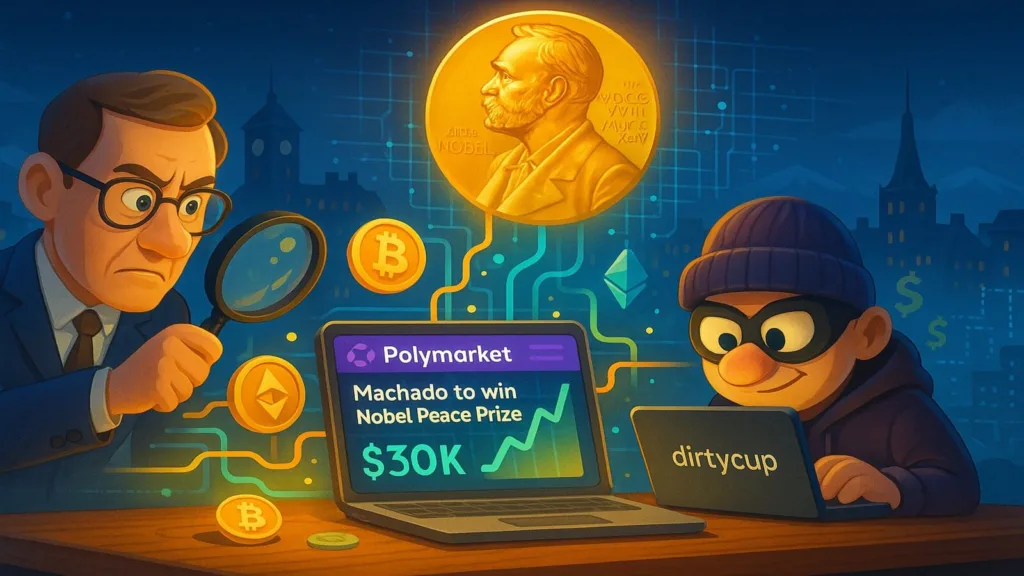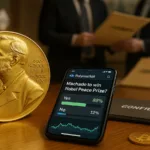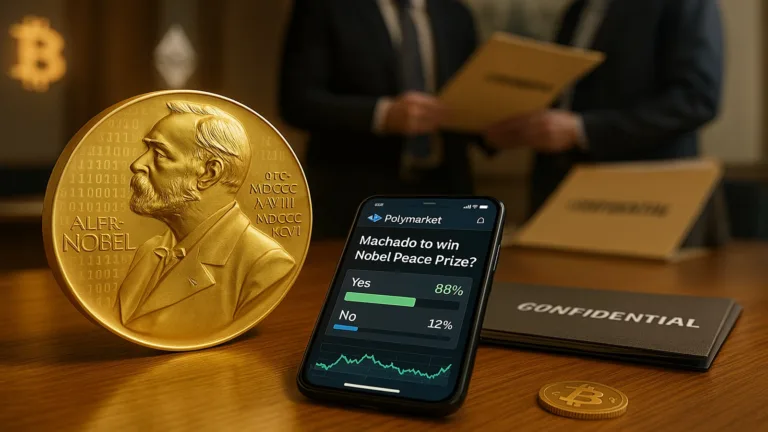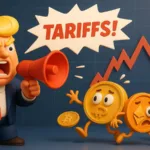When one crypto trader bet big on the Nobel Peace Prize winner hours before the announcement, Norway saw more than luck; it saw a mystery that could redefine trust in prediction markets and Web3 transparency.
If you ever needed proof that crypto and world politics have officially collided, this might be it. A single trade, one sharp, well-timed bet on the Nobel Peace Prize, has sparked a full-blown investigation that now stretches from Oslo’s quiet offices to the neon-lit dashboards of blockchain traders.
It’s a story about money, secrets, and the invisible bridges between the real world and the Web3 one. And like most good mysteries, it starts with a name: “dirtycup.”
The bet that shook Oslo
On the crypto prediction platform Polymarket, users bet on the outcome of real-world events, elections, Oscars, presidential trials, and even the Nobel Peace Prize. It’s meant to be harmless speculation, powered by blockchain transparency. But this year, something went off-script.
Just hours before Venezuela’s María Corina Machado was announced as the 2025 Nobel Peace Prize winner, one newly created Polymarket account placed a massive bet, roughly $70,000, all-in on her victory. When the dust settled, that same user walked away with $30,000 in profit. Two more accounts made nearly $90,000 combined.
When web3 meets the world’s most secret decision
For decades, the Nobel Peace Prize has been shrouded in total secrecy. Even staff members at the Nobel Institute often don’t know who’s won until the envelope is opened live on stage.
But Polymarket doesn’t work in whispers; it works in data. Every trade is public, every wallet transparent, and every odd updated in real time. That’s both its genius and its curse: when everyone can see everything, one move can expose a leak before the world even knows it’s a leak.
If someone inside the Nobel circle leaked the result early, blockchain would immortalize the proof forever, the timestamped bets, the addresses, and the payout. It’s an irony no novelist could have written better.

Big money, bigger eyes
This story also lands just as Polymarket steps into its most ambitious era.
In early October, the Intercontinental Exchange (ICE), yes, the parent company of the New York Stock Exchange, invested $2 billion in Polymarket ahead of a U.S. relaunch.
The timing couldn’t be more dramatic. On one hand, Wall Street is finally embracing blockchain prediction markets. On the other hand, regulators are watching closely, wondering if “betting on the future” could become “profiting from leaks.”
The U.S. Commodity Futures Trading Commission (CFTC) recently gave Polymarket a no-action letter, a bureaucratic way of saying, “We won’t sue you for now.” It’s a cautious green light, but the Nobel Peace Prize scandal may now force that light to flicker amber again.
Democracy, Bitcoin, and a woman named Machado
And at the center of it all stands María Corina Machado, a Venezuelan activist who’s spent years risking her life to restore democracy in her country. When she won the Nobel Peace Prize, it wasn’t just about politics; it was about survival.
Machado has long praised Bitcoin as “a lifeline” for Venezuelans crushed by hyperinflation, saying crypto gave ordinary people a way to “protect their wealth and finance their escape.” So in a strange twist of fate, the same technology that helped Venezuelans survive is now under investigation for possibly helping someone profit off the very award given in her honor.
The moral math of prediction markets
Prediction markets like Polymarket were designed to make truth measurable, to let people “vote with money” on what they believe will happen. But the Nobel Peace Prize case exposes a deeper paradox:
What happens when truth arrives too early?
What if the line between “prediction” and “privileged information” disappears?
The beauty of Web3 is transparency. The danger of Web3 is also transparency.
It doesn’t hide human flaws; it amplifies them, recording every move forever on-chain.
Final thoughts: When secrets meet the blockchain
The Nobel Peace Prize scandal may end up being nothing more than a coincidence, a lucky bet on a deserving winner. Or it could be the first real-world test of how far blockchain accountability can stretch when power, politics, and profit collide.
Either way, one truth remains: Every click, every trade, every bet on the blockchain leaves footprints. And in a world chasing transparency, even the most sacred secrets, like the Nobel’s envelope, might not stay sealed forever.













